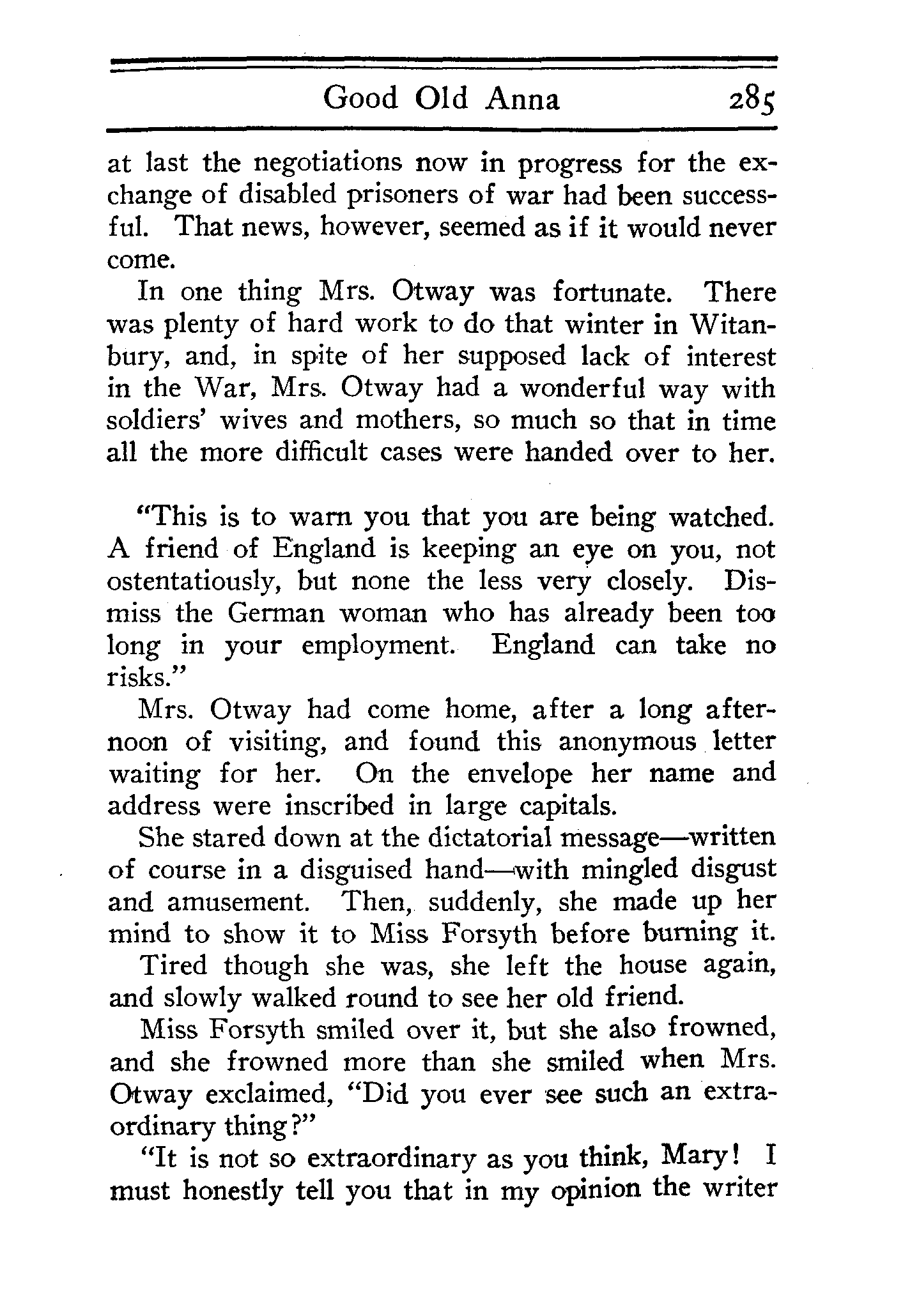 p284 _
-chap- _
toc-1 _
p285w _
toc-2 _
+chap+ _
p286
p284 _
-chap- _
toc-1 _
p285w _
toc-2 _
+chap+ _
p286
at last the negotiations now in progress for the exchange
of disabled prisoners of war had been successful.
That news, however, seemed as if it would never
come.
In one thing Mrs. Otway was fortunate. There
was plenty of hard work to do that winter in Witanbury,
and, in spite of her supposed lack of interest
in the War, Mrs. Otway had a wonderful way with
soldiers' wives and mothers, so much so that in time
all the more difficult cases were handed over to her.
"This is to warn you that you are being watched.
A friend of England is keeping an eye on you, not
ostentatiously, but none the less very closely. Dismiss
the German woman who has already been too
long in your employment. England can take no
risks."
Mrs. Otway had come home, after a long afternoon
of visiting, and found this anonymous letter
waiting for her. On the envelope her name and
address were inscribed in large capitals.
She stared down at the dictatorial message -- written
of course in a disguised hand -- with mingled disgust
and amusement. Then, suddenly, she made up her
mind to show it to Miss Forsyth before burning it.
Tired though she was, she left the house again,
and slowly walked round to see her old friend.
Miss Forsyth smiled over it, but she also frowned,
and she frowned more than she smiled when Mrs.
Otway exclaimed, "Did you ever see such an extraordinary
thing?"
"It is not so extraordinary as you think, Mary! I
must honestly tell you that in my opinion the writer
[[285]]
p284 _
-chap- _
toc-1 _
p285w _
toc-2 _
+chap+ _
p286